Reaping the Whirlwind
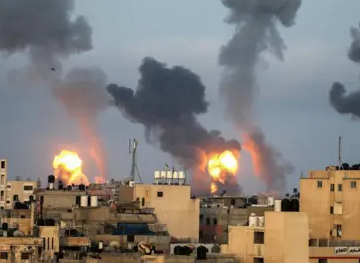
This week, Israel launched a surprise pre-emptive strike on Iran, marking a dangerous new phase in an already volatile regional conflict. The attack was reportedly aimed at disrupting Iran’s ballistic missile capabilities, but it also devastated a residential neighbourhood on the outskirts of Tehran in the process of assassinating a key figure in the Iranian military. The strike killed dozens of civilians and prompted a ferocious retaliatory barrage from Iran. This latest escalation not only risked igniting a full-scale regional war but also further entrenched Western powers in a conflict increasingly devoid of moral clarity.
This was not the first time. Back in April 2025, Israel had already carried out a dramatic pre-emptive strike deep into Iranian territory, targeting what it claimed were military facilities tied to Iran’s regional proxy operations. Rather than a contained tactical move, this escalation risked igniting a broader regional war, prompting swift retaliatory strikes from Iran and raising the stakes for every nation allied with Israel.
The world now stands at the edge of a geopolitical precipice, and Israel as usual is leading the charge. With every airstrike in Gaza and every provocation against Iran, Israel is not simply defending itself, it is dragging the West toward an all-out global confrontation. And in blindly following Tel Aviv, the United States, the UK, and other allies risk finding themselves not on the side of justice, but potentially on the wrong side of history. A history that there’s every possibility, no one will be left to write.
For decades, Benjamin Netanyahu has made clear his desire for confrontation with Iran, viewing the country as Israel’s foremost existential threat. In his 1995 book ‘A Place Among the Nations’, Netanyahu explicitly argued that Iran’s regime, under the guise of its nuclear program, posed an intolerable danger that justified pre-emptive action. He warned that Iran’s acquisition of nuclear weapons would threaten not only Israel’s survival but regional and global stability. Throughout his political career, Netanyahu has consistently pushed for a hard-line stance, advocating military options and undermining diplomatic efforts like the 2015 Iran nuclear deal. His rhetoric and policies have significantly contributed to escalating tensions, culminating in the recent pre-emptive strikes and the widening regional conflict.
Although our Government will twist and turn in mental gymnastics to say that Gaza and Iran are two different issues, they are very much linked and Israel’s behaviour in Gaza should have stopped our support for them long ago.
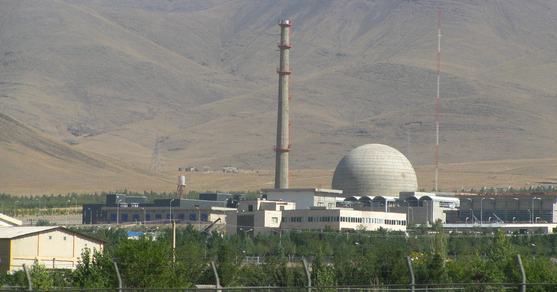
Iran, it must be said, is far from a beacon of liberty. It is a theocratic regime with a long and well-documented history of repression. As well as Gaza, it held proxies in Lebanon and Yemen, together with arming Russia in the Ukraine war. It also has a tortuous relationship with Saudi Arabia that could very easily spill over into war. So opposing Iran, and it should be opposed, does not require blind allegiance to a government currently carrying out what many international observers now describe as war crimes. One does not excuse the other. We can, and must, call out Iranian aggression while also condemning Israel's actions.
Iran’s nuclear program began in the 1950s under the 'Atoms for Peace' program, initiated by the United States and supported by Western allies. Initially, Iran sought to develop nuclear technology for peaceful purposes such as energy generation and medical research. During the reign of Shah Mohammad Reza Pahlavi, Iran received significant assistance from the US and Europe to build nuclear reactors and infrastructure. Following the 1979 Islamic Revolution, Iran’s nuclear ambitions became more secretive and contentious. The new regime’s relationship with the West deteriorated sharply, especially after the hostage crisis at the US Embassy in Tehran. Suspicion grew that Iran might pursue nuclear weapons capabilities, though Tehran consistently maintained its nuclear program was for peaceful uses.
Throughout the 1990s and early 2000s, Western intelligence agencies raised alarms about possible clandestine enrichment and weaponisation efforts. The International Atomic Energy Agency (IAEA) repeatedly found Iran in non-compliance with its safeguarding agreements, leading to a series of United Nations Security Council resolutions imposing sanctions aimed at halting Iran’s nuclear development. Diplomatic efforts culminated in the 2015 Joint Comprehensive Plan of Action (JCPOA), commonly known as the Iran nuclear deal, negotiated between Iran and the P5+1 (the US, UK, France, Russia, China, and Germany). The agreement significantly curtailed Iran’s nuclear program in exchange for sanctions relief and included stringent monitoring measures. However, in 2018, the US under President Donald Trump unilaterally withdrew from the JCPOA and reinstated harsh sanctions, prompting Iran to resume certain nuclear activities beyond the deal’s limits. Since then, diplomatic efforts have fluctuated, with intermittent talks but no comprehensive resolution. Iran’s nuclear program remains a critical point of tension in its relations with the West, often shaping regional dynamics and security calculations.
While Iran insists its program is peaceful, many Western countries, particularly Israel and the U.S., view it as an existential threat, fuelling fears of nuclear proliferation and regional instability.
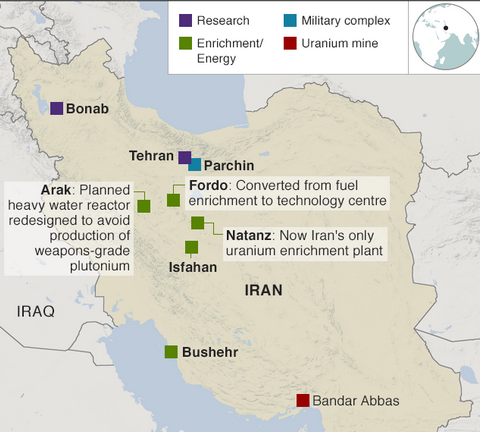
On October 7th, 2023, when Hamas launched its brutal assault, the world briefly stood in solidarity with Israel. The attack was an appalling act of terror that demanded condemnation and action. This solidarity quickly faded as it became apparent Israel was going to turn an atrocity into an opportunity. Since that moment, Israel's response has spiralled far beyond any reasonable definition of self-defence. Its actions in Gaza and beyond have stripped it of the moral clarity it once held. What began as a legitimate response has evolved into ethnic cleansing, a land grab and a campaign of devastation, and the international community’s continued support is enabling that transformation.
As of mid-2025, more than 55,000 Palestinians have been killed since the renewed conflict began. The bombardment has levelled entire neighbourhoods. Civil infrastructure has been decimated. The siege has deprived millions of water, food, and electricity. In this context, Israel’s narrative of moral superiority is not only crumbling, it is offensively hypocritical.
The hypocrisy reached a fever pitch when Israel, after launching a strike deep into Tehran, which reportedly struck a residential block, accused Iran of war crimes for its missile response. This selective outrage underscores the grotesque double standard in Western foreign policy. Israel can bomb civilian areas in Gaza for 18 months and still claim the moral high ground, but Iran's response to a direct strike is instantly vilified.
Hospitals have been one of the clearest flashpoints in this asymmetrical conflict. Throughout the war, Israel has consistently targeted medical infrastructure, often under the justification of rooting out Hamas operatives allegedly hiding within. Yet time and again, these strikes have disproportionately harmed civilians and decimated healthcare capacity.
In December 2024, Kamal Adwan Hospital was shelled and stormed, resulting in over 30 deaths, including four medical staff. Médecins du Monde’s Gaza office was struck in June 2025, killing eight civilians. By mid-2025, 700 known attacks on health facilities had been documented. Of Gaza's 36 hospitals, fewer than a handful remain even partially functional. Even aid centres have not been spared.
On June 14, Israeli strikes near food distribution points in central Gaza killed at least 35 Palestinians. These attacks are not just militarily disproportionate, they are violations of international humanitarian law.
Journalists have also borne the brunt of Israel's campaign. As of June 2025, more than 170 journalists have been killed since the conflict's escalation in late 2023. These are not random casualties of war. In numerous cases, journalists were explicitly targeted or killed in areas clearly marked as press zones. This is all the more concerning as foreign press aren’t allowed into Gaza, implying that Israel has lots to hide here. In March 2025, Hossam Shabat of Al Jazeera and Mohammad Mansour of Palestine Today were killed in strikes later confirmed by the IDF to be intentional. Just weeks earlier, veteran journalist Hassan Aslih was killed when the hospital he was being treated in was bombed. On March 31, a press tent outside Al-Aqsa Martyrs Hospital was struck, killing four journalists and injuring eight more. In December 2024, a press van near Al-Awda Hospital, clearly marked as a media vehicle, was targeted in an overnight strike. Five journalists sleeping inside were killed instantly. The Committee to Protect Journalists (CPJ) and Reporters Without Borders have repeatedly condemned these attacks, calling for independent investigations and labelling them potential war crimes.
And yet, the silence from Western governments has been deafening.
One of the most harrowing testimonies comes from Al Jazeera’s Ismail Al-Ghoul, who was beaten and detained by IDF forces while reporting inside Al-Shifa Hospital. His camera equipment was destroyed, and he was held for over 12 hours without charge. His story is one of many that speak to a deliberate effort to silence the press and control the narrative.
The complicity of British political leaders in this unfolding catastrophe must also be laid bare. former Prime Minister Rishi Sunak, Prime Minister Keir Starmer, and Shadow Foreign Secretary David Lammy have consistently aligned themselves slavishly with Israel’s military campaign, even as evidence of war crimes mounts. Starmer, who's leadership campaign was funded by the Israel lobby, who notoriously defended Israel's right to cut off essential utilities to Gaza in the early weeks of the war, which itself is a war crime, has repeatedly failed to put pressure on Israel. Meanwhile, David Lammy has received donations, trips and hospitality funded by pro-Israel lobbying groups, as declared in the Register of Members’ Financial Interests. These financial and political links raise serious ethical concerns about the impartiality of British foreign policy.
Such unwavering political support, backed by military contracts and diplomatic shielding, including continuing to supply parts for F35 ‘Tentbusters’, training the IDF in the UK, flying RAF spying sorties over Gaza for the Israelis and as from yesterday – sending troops and planes to Cyprus en route to whatever unfolds makes these leaders complicit in the consequences of Israel’s campaign.
When hospitals are bombed, when journalists are silenced, and when international law is ignored, those offering political cover cannot absolve themselves. The International Criminal Court should expand its gaze beyond the perpetrators on the ground to include those in London and Washington who enable, fund, and excuse these acts. The Nuremberg principles demand no less.
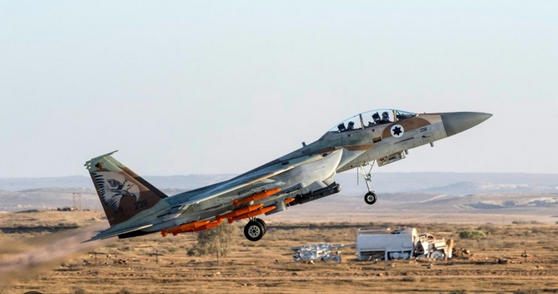
In 1942, RAF commander Sir Arthur Harris justified the saturation bombing of German cities by declaring: “They have sown the wind, and they shall reap the whirlwind.” It was a brutal logic of retribution and collective punishment, aimed not just at military targets but at breaking the will of civilian populations. That same logic now seems to underpin Israel’s campaign in Gaza. From the siege tactics to the deliberate targeting of hospitals and media, Israel appears to be deploying the doctrine of collective punishment under the guise of self-defence. The result is a level of civilian suffering that is not just collateral damage, it is the strategy.
Western governments must now ask themselves: are we truly standing on the side of justice, or are we complicit in the reaping of this whirlwind? Every shipment of arms, every veto at the UN, and every silence in the face of atrocities is an endorsement of this scorched-earth policy. If the West genuinely believes in human rights and the rules-based international order, it must hold all parties accountable, including its allies. That means an immediate ceasefire, full humanitarian access, and independent investigations into attacks on civilians, journalists, and hospitals. It means withdrawing military and diplomatic cover from a government that has demonstrated time and again a willingness to disregard international law. We must resist the binary logic that pits Iran as evil and Israel as righteous. The reality is more complex and far more damning. Morality cannot be determined by alliances but by actions. To side blindly with Israel today is to turn a blind eye to the suffering of millions and to embolden a state that is increasingly embracing the logic of wartime nihilism.
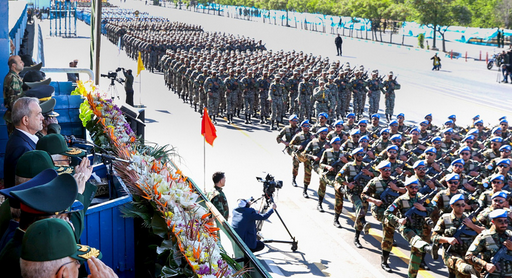
It is not too late to change course. But time is running out. Thanks to an unchecked out of control Israel and our weak, submissive and passive Government, we are standing on the edge of a geopolitical tinderbox, where a single miscalculation could ignite a wider conflagration. In a week where the US is teetering between 1933 Germany and 1789 France, we are at the July 1914 stage. The fragile balance in the Middle East is increasingly precarious: Russia, bulled by weak and unreadable US and seeking to exploit Western entanglements, could and most probably will escalate its involvement, either directly or through proxy forces. It would claim it had no choice since its supply of weapons for its war in Ukraine has dried up. Meanwhile, the Houtie rebels in Yemen have already demonstrated their capability to disrupt critical infrastructure: such as cutting the crucial undersea communication cables that pass within a few miles of it in the Red Sea and threatening global trade routes. Most alarmingly, Iran holds the power to close the strategic Straits of Hormuz, a chokepoint through which roughly 20% of the world’s oil supply transits. Any blockade here would not only cripple energy markets but likely provoke military responses from the US and its allies. Together, these flashpoints could rapidly spiral beyond regional conflict and plunge the world into the abyss. The cold third world war we are currently experiencing won't take much to push it into a hot one.
The whirlwind is here. The question is: will we continue to fuel it, or will we finally try to stop it?
The world has gone mad. If you enjoyed reading this, please feel free to look at the rest of the blogs on www.TetleysTLDR.com. They're free to view, there's no paywall, they aren't monetised and I won't ask you to buy me a coffee. Also please free to share anything you find of interest, we only get the message out if people are aware of it. Just a leftie, standing in front of another leftie, asking to be read. All the best, Tetley

